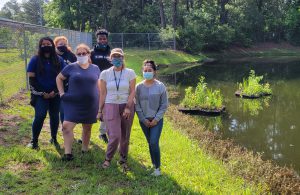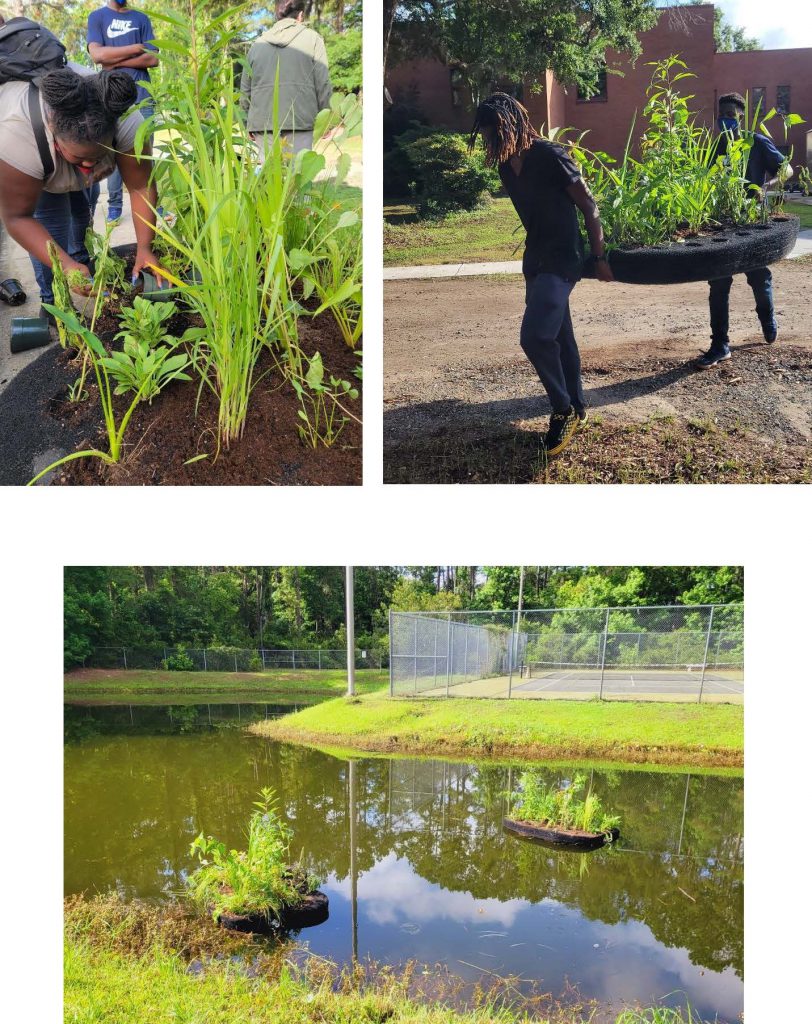Students at St. John’s High School in Charleston, South Carolina, have been working with a partnership of NCCOS staff at the Hollings Marine Lab and NOS Education on a new initiative of the NOAA Planet Stewards Program: “Charleston Planet Stewards.” This is the first year that NCCOS and NOS Education have collaborated to provide funding and resources to underrepresented students in the Lowcountry.

High School students were charged with identifying an environmental concern on their school campus and designing a stewardship action plan to mitigate the issue. After completing a bioassessment and phytoplankton monitoring training with NCCOS Research Staff, students began to design their project.
For this school year (2020-2021) stewardship project, St. John’s High School students created vegetated floating islands as a bioremediation method to improve the water quality of their campus stormwater retention pond. The retention pond is frequented by wildlife and has been known to produce algal blooms.
Charleston Planet Stewards was jointly developed by NOS Education and staff from the NOAA Hollings Marine Laboratory. The program connects local educators and students directly with NCCOS scientists and their research. Participants learned environmental data collection techniques, practiced science communication, and engaged in stewardship of their coastal communities. The project provided school funding via the federal Title 1 program.
Charleston Planet Stewards is part of NOAA Planet Stewards which provides funding and resources to educators to carry out hands-on stewardship projects that conserve, restore, and protect communities and natural resources from environmental impacts.

